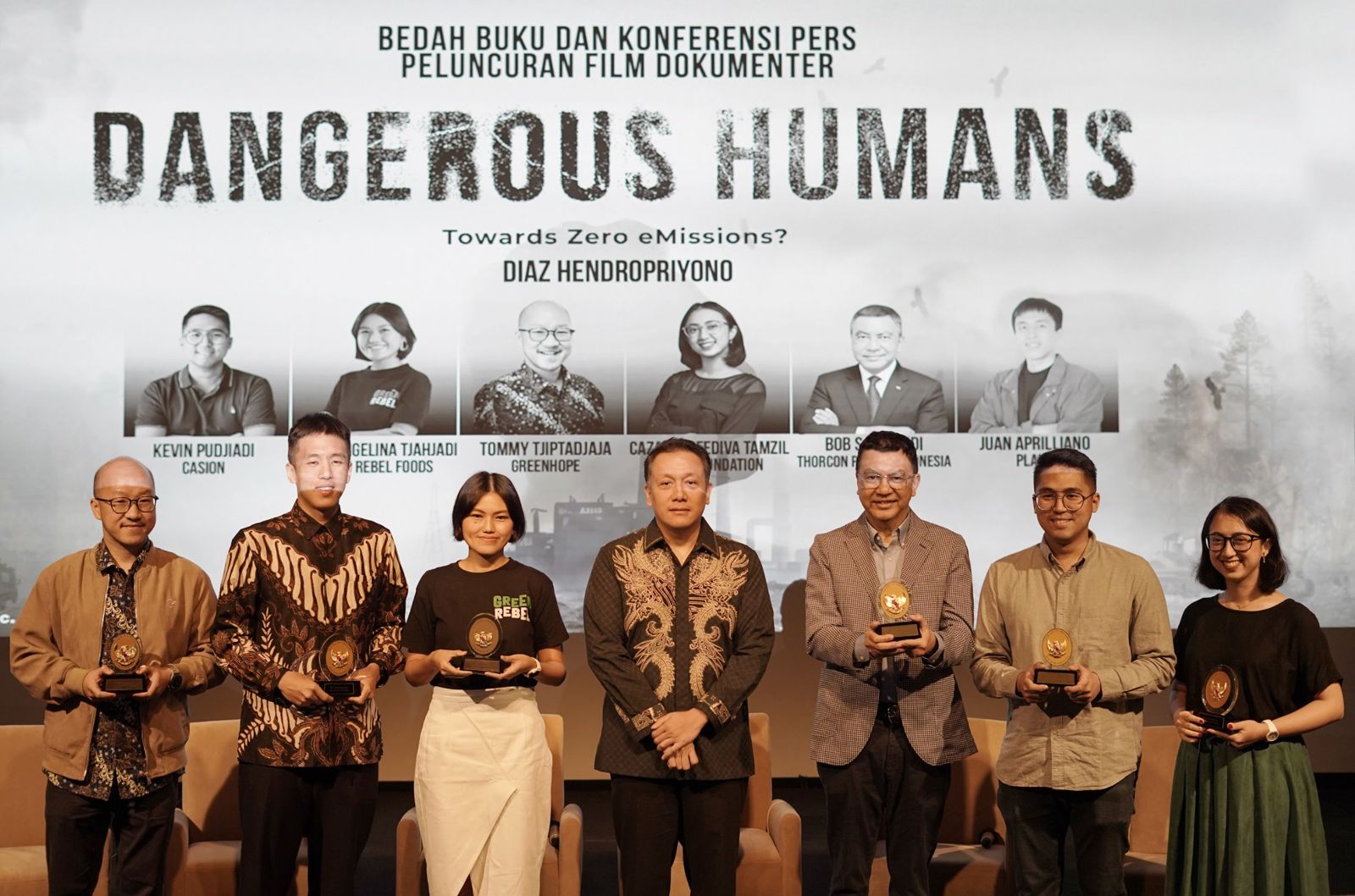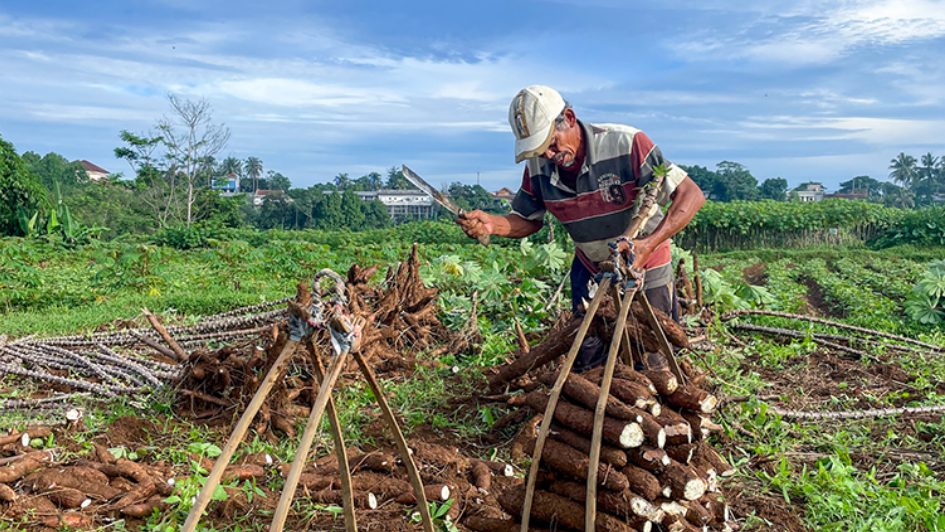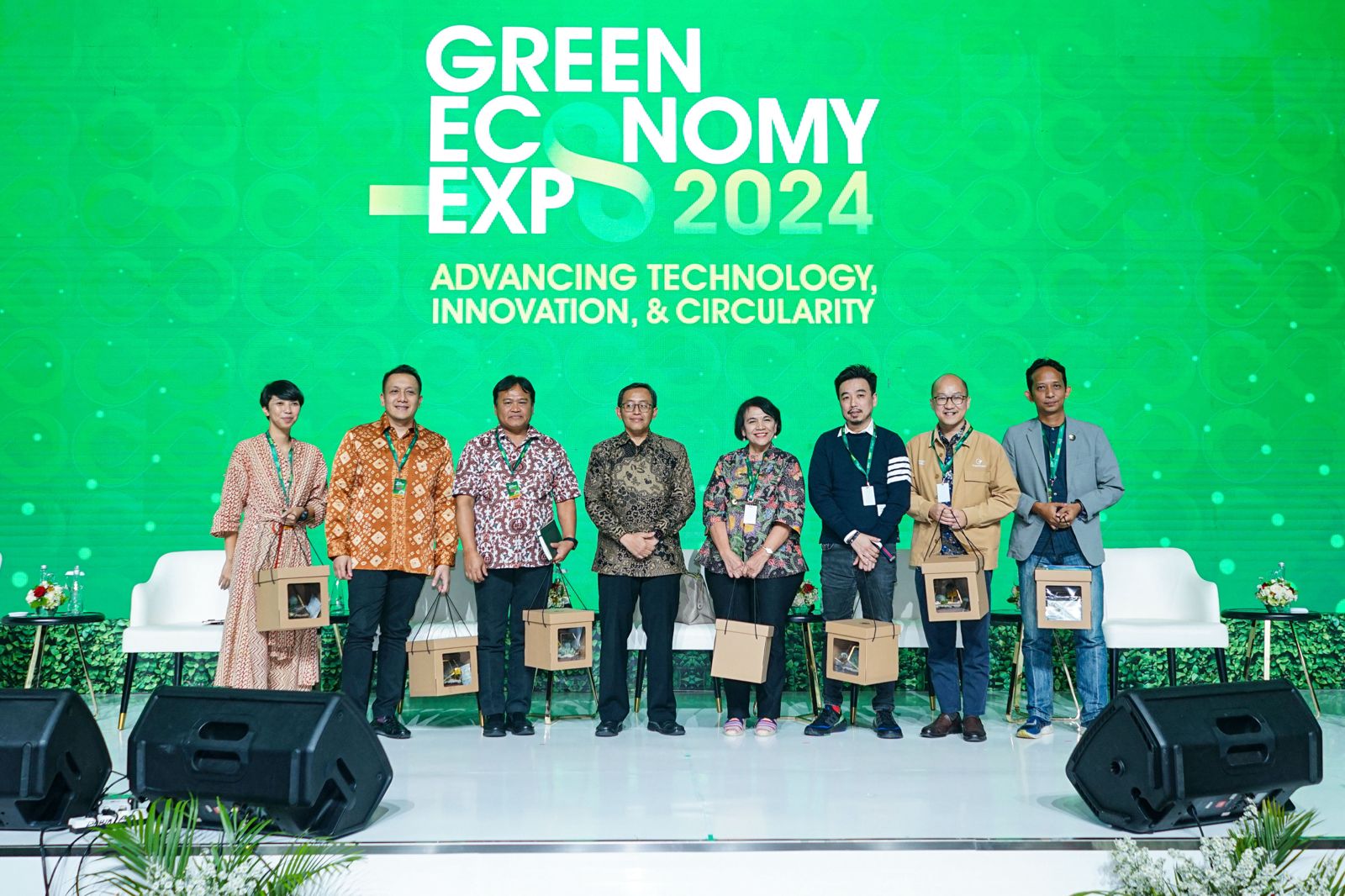Socialisation of the Joint Monitoring Programme of KLHK, INSWA and YPBI
Friday, 10 February 2017
On 9 February 2017, Greenhope together with Yayasan PERISAI/ Indonesian Solid Waste Association (InSWA) and Yayasan Peduli Bumi Indonesia (YPBI) and the Ministry of Environment and Forestry (KLHK) jointly launched the Ecolabel Type 1 Biodegradable Plastic Monitoring Programme in Central Jakarta. This activity is a form of Greenhope's commitment to collaborate with NGOs to manage plastic waste, which is said by various parties to be the root cause of the emergence of floods, landslides, and the imbalance of marine and land biota ecosystems. This programme is carried out by monitoring converter products that already use Oxium technology degradable plastic.
Greenhope feels optimistic that if the use of degradable plastics is implemented by various parties, it will have a significant impact on reducing the accumulation of plastic waste in the community. Therefore, Greenhope feels it is important to supervise the use of Oxium and Ecoplas technology from upstream to downstream, by creating a monitoring programme. The socialisation of the monitoring programme also aims to create an information resource platform between Greenhope, NGOs and converter companies in understanding the importance of running a sustainable and regular programme.
In response to the socialisation of the Monitoring Programme, Mr Noer Adi Wardoyo (Head of the Standardisation Centre of the Ministry of Environment and Forestry) strongly supported the monitoring programme so that environmentally friendly claims can be accounted for. With this monitoring programme, he continued, it can also be a means of providing advocacy for business sustainability from companies that have collaborated with Greenhope and NGOs. KLHK will also launch a programme to use biodegradable plastic bags in every government agency.
One form of commitment in carrying out the Monitoring Programme is to assign labels to plastics that have used Oxium technology. The use of labels that have been set must also be controlled, following the applicable laws and rules of the game. The labels that have been determined are, each converter must include three logos, namely the SNI Ecolabel 1 Logo, the licensed Oxium Logo and the NGO Logo (YPBI and InSWA) as attached below:
The monitoring technique carried out is by randomly taking samples from converters, retailers and plastic bags circulating in the field. After all samples are collected, testing is carried out in the laboratory to analyse the amount of Oxium used. The results of the analysis will be compiled in the form of reports, articles and award letters to converters who have used Oxium with the right dose or more. As for converters who are caught using inappropriate doses, reports and guidance will be given to jointly control their production.
The socialisation of the Monitoring Program overall received a good response from the participants. They support the use of biodegradable plastics and support the monitoring programme. However, there needs to be awareness from the community and most other flexible packaging entrepreneurs to jointly solve our environmental problems. Let us together solve the waste problem by using biodegradable plastics with type 1 Eco-labels wisely!



